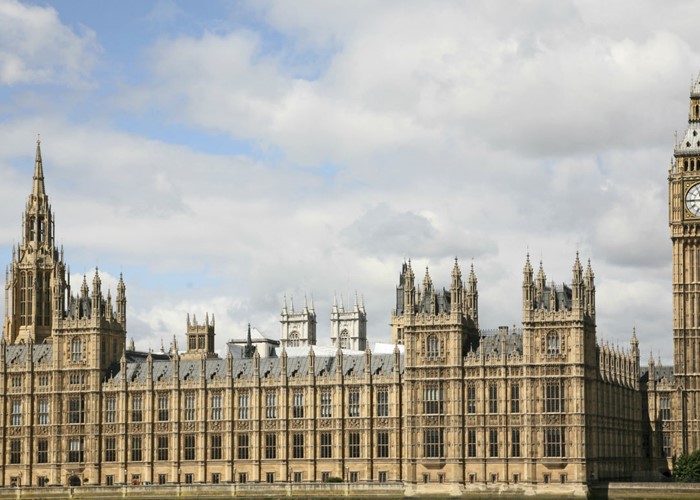Nick Clegg's bonkers bank bribe

The Deputy PM's idea to hand out free shares in Lloyds and RBS is daft.
One of the joys (and sorrows) of being a government minister is that you have a whole team of people whose job it is to think for you.
Often, these 'policy wonks' are young, highly intelligent special advisers, political activists or civil servants. They spend their time looking to impress their masters --and wow the public -- with big ideas that can be implemented at relatively low cost.
To get an idea of how these policy wonks work, all you have to do is watch the outstanding BBC comedies Yes, Minister, Yes, Prime Minister and, more recently, The Thick of It.
Nick Clegg's big idea
Since forming a coalition government with the Conservatives in May 2010, Deputy Prime Minister Nick Clegg MP has been under the cosh. Faced with the reality of the nation's shaky public finances, he and his Liberal Democrat party have abandoned several pre-election promises.
What's more, it appears that the Deputy PM has been paying too much attention to his policy wonks, because he outlined a frankly daft proposal last week. During a two-day trade trip to Rio de Janeiro in Brazil, Clegg put forward an idea for what he called "the people's bank".
Clegg's plan is deceptively simple.
Related blog post
- Ed Bowsher writes:
Political correctness gone mad
Today's European Court ruling on alleged discrimination by the insurance industry is bonkers.
Read this post
(Note that Clegg didn't ask taxpayers to cough up for the vast losses run up by 100% state-owned banks Bradford & Bingley and Northern Rock.)
What do we own?
What did we get in return for our multi-billion-pound bailouts of these banks?
Lloyds
We paid £17.4 billion for 27.6 billion shares in Lloyds, at an average price of 63.2p a share. This bought us 41% of the 'black horse' bank.
At the current price of 42.9p, our stake is worth £11.8 billion. In other words, Joe Public is down by £5.6 billion, or £208 per household.
RBS
We paid £45.2 billion for 90.6 billion shares in RBS, at an average price of 49.9p a share. This bought us an 83% share of the Edinburgh-based bank.
At the current price of 35.6p, this stake is worth £32.3 billion. In other words, we've lost out by nearly £13 billion, or £480 per household.
At present, these two bailouts have lost the government (and the public) a total of £18.6 billion, or £688 for each of the UK's 27 million households. Ouch!
Clegg's bank bribe
Nick Clegg's idea is to empower the public -- and put the banks in their place -- by gifting these shareholdings to each of the UK's 46 million over-18s. In other words, he aims to bribe voters with a bung of bank shares.
The idea is that the government sets a 'floor price' for the shares, probably the average prices we paid for our stakes (50p per Lloyds share and 63p per RBS share). When voters sell their free shares, they pocket the gain above these break-even prices.
Suppose both shares eventually reached a third (33%) above these break-even prices: 84p for Lloyds and 66.4p for RBS. This would deliver a capital gain of £20.7 billion to voters, or £766 per household.
Four big snags
On the surface, getting 'something for nothing' or a 'free lunch' is pleasant -- unless it's offered by a politician. Predictably, there are four big problems with Clegg's give-away:
First, Clegg is giving us something we already own. Our stakes in Lloyds and RBS are managed by UK Financial Investments (UKFI) on behalf of the government and, ultimately, the British public.
Second, both stakes are deeply underwater; in other words, we're sitting on a big loss at the moment. Therefore, any mass share-ownership scheme shouldn't take place until both shareholdings are 'above water', that is, back in profit.
Third, divvying up these stakes between the UK's 46 million adults would be a logistical nightmare on a vast scale. Tracking down all UK adults in order to hand over their share certificates would be a Herculean effort. Also, what about non-residents, prisoners, people who die just before the shares are issued, and so on?
Frankly, a successful public share handout would be the Devil's own job. Indeed, building society-turned-bank Halifax demutualised in 1997 and was still trying to track down missing shareholders a decade later. Hence, I reckon the costs of distributing these shares would exceed the cost of the 2011 census (perhaps £500 million).
Fourth, our nation is deeply in debt. Therefore, any ultimate profits from selling Lloyds and RBS should go towards reducing public sector net debt. Last month, this figure hit £921 billion and is growing at over £10 billion a month. Put simply, when a country's broke, there's no room for bribes, no matter how widespread.
Ditch this daft plan
This isn't the first time that this idea has reared its head -- it was also suggested by Lib-Dem Stephen Williams MP in March. Despite being a headline-grabbing crowd-pleaser, it seems to me to consist of 100% political manipulation and 0% financial sense.
If Nick Clegg has any sense, then he must drop this public-relations stunt like a hot potato!
More: Start saving for a brighter future | We all lose from the Rock sale | You can beat professional investors
Comments
Be the first to comment
Do you want to comment on this article? You need to be signed in for this feature